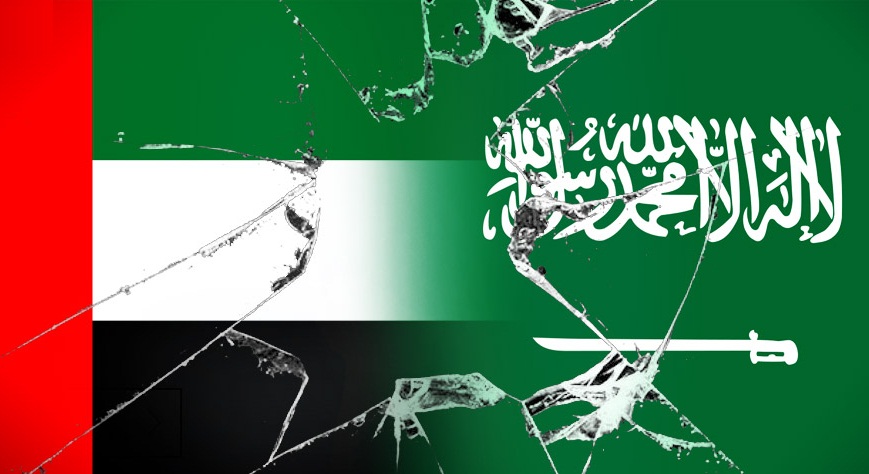
RNA - First it was their failed regime-change war against Syria in alliance with the United States and Israel that killed tens of thousands of people and made millions more refugees in a period of seven years.
Then their three-year war on Yemen that turned the poorest country in the Arab world into the worst humanitarian disaster of the 21st century. Now the United Nations say, there are no clear and strong legal parameters in the Persian Gulf Arab countries to protect the most vulnerable of Asian and African migrants from denial of access to fundamental rights.
A new report by the UN’s proposed Global Compact on Migration, currently under negotiation by UN member states, which covers a wide range of issues on labor and human rights, and is a significant opportunity to improve the governance on migration and to address the challenges associated with today’s migration, says, the Persian Gulf Arab countries (mainly Saudi Arabia and the United Arab Emirates) need to address the specific issues faced by Asian and African workers as they comprise a significant part of the regional workforce in informal employment and are among the most vulnerable groups of workers.
The Persian Gulf region has an estimated 2.4 million migrant workers, traditionally recruited from Asia - mostly from the Philippines, Indonesia and India. All foreign workers in the Persian Gulf fall under the Kafala (a visa-sponsorship) system which does not allow them to leave or change employers without their initial employer’s consent. If they do, they can be arrested and punished for “absconding” with fines, detention, and deportation. Most Persian Gulf Arab countries claim they have begun pushing some sort of reforms when it comes to labor laws for migrant workers, but these are just words.
For instance, they claim they adopted bills on migrant workers that for the first time guarantees a weekly day of rest and some other end-of-service payment. While a significant advance, these draft laws (emphasis here) still fall short of the International Labor Organization’s Domestic Workers Convention, “as they provide fewer protections than those accorded other workers under labor laws. They also don’t guarantee their basic human rights,” according to a statement by Human Rights Watch.
This includes weak migrant worker regulations with no penalties for employer breaches, and no labor rights in law. The Persian Gulf Arab states claim they have been making reforms in their labor laws. But the very essence of this system of Kafala is very harsh and exploitative because the sponsor basically has absolute power over their employees. This forces migrant workers to work in isolation and harsh conditions and are vulnerable to sexual and other forms of abuse. Some have even been murdered by their employees with no charges filed against them.
To substantiate, just earlier this month, the Philippines barred its nationals from seeking domestic positions in Kuwait after a Filipina maid was found dead in a freezer in her employer’s home, which officials in Manila state was merely one of many similarly unacceptable incidents in the Persian Gulf state. The same problem exists in Saudi Arabia and the UAE where the authorities refuse to ink any agreement with the Asian states to reassure greater protection and a stronger regulatory framework for migrant workers and those low-skilled nationals working or seeking work.
Far from it, several reports, including one by Human Rights Watch, show that ever since Asian countries like India and the Philippines began tightening regulations to protect their nationals, Arab recruiters have been expanding their demand for cheap domestic labor into East Africa - especially in nations where poverty and high unemployment make the offer of work in the Persian Gulf hard to refuse.
According to Fars News Agency, just like their Asian counterparts, African migrant workers also think they are going to have a lot of money and become rich. But they don’t know that they are going to be exploited and their basic human rights violated. Their dream jobs that should allow them to support their families back home mostly means spending years virtually imprisoned in their employers’ houses, being exploited and mistreated, and allowed only two meals of leftovers a day.
Sadly enough, all these damning human rights reports haven’t stopped the highly selective Trump White House from inking new lucrative business deals with the Persian Gulf Arab states, including arms sales that are mainly used by America’s patrons against innocent civilians in the war zones of Yemen and Syria.
This shows much better how President Donald Trump and his top leadership largely ignore human rights issues, long claimed to be important to US foreign policy, for the sake of money and regional designs - the full range of rights important to everyone, including those migrant workers trapped in the Persian Gulf. Instead, the selective foreign policymakers at the white House approve appalling arms sales worth hundreds of billions of dollars all while giving short shrift to the very values and rights that the US has long used to justify wars, sanctions and regime change against other nations.
847/940